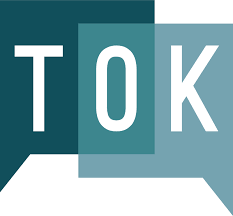History EE/IA Research Tips
- emadelinelane
- Jan 21, 2024
- 5 min read
Updated: Jan 9
Research can be the hardest part of any paper. Sometimes, it seems impossible to know where to start or how to organize the information so as not to waste your own time, especially with long and sometimes complex IB History papers. If that sounds like you, maybe these 5 tips can help you out! I discovered all of these strategies for my History IA junior year and used them again to help my EE process run smoothly.
Be Brutal with Your Quotes
One of the first things you will do as part of your IA or EE process is start researching and collecting quotes. During this process, it can be tempting to want to write down/ copy and paste a lot of material into your document because everything seems relevant or even just because you found out something cool. Resist the urge! Before you record a quote, see if you can picture a sentence where you would use it. Scrutinize your outline and identify exactly which section it goes in and exactly how it is going to help prove your point. If that isn't immediately obvious, don't write it down!
The reason this is so important is efficiency. If you copy and paste paragraphs or even whole articles into your notes document, you're going to end up reading all of your sources twice just trying to find a succinct and relevant quote. If you're brutal the first time, you won't have to pause your writing flow to hunt for quotes when you start on the actual paper.
The other aspect of quote hunting is quotes that have the same idea from different sources. In general, I would say that you shouldn't record more than 3 quotes that have the same specific idea, otherwise you're starting to creep up on redundancy. Having some repetition is good; for example, if you are overusing a source and you find a quote from a different historian who makes one of the same points as the original source, it's a good idea to write down the second opinion so that you can use the first source less. Plus, its good to demonstrate that multiple experts agree with your claim because it bolsters your legitimacy. Just don't waste time inserting ten quotes that all make the same point.
Stay Organized!
Now that we've got some brutally selected quotes, it's time to organize. Again, the objective here is efficiency. You could just throw a bunch of text in a document, but it's going to take ages to sift through all of the information and trace back to the original sources... not a plan for success.
I am a very visual person, so during my History IA process, I came up with a color-coding system for my quotes that allowed me to quickly scroll through a very long document and see what topics needed more evidence just by noticing that I didn't have enough green text. Obviously, I'm not the first person to have used this system, but it was a breakthrough for me and helped a lot during my EE process the following summer.
There are, of course, a million ways to organize your quotes, so find a way that works for you. Some of my peers used graphic organizers, outlines or other tools to help organize- whatever floats your boat. The big no-no here is to just throw everything into a document and start writing, because it's gonna take you double the effort and triple the time.
Don't Shy Away from the Rabbit Hole
This one might be a bit controversial in that its truth is probably dependent on the person. However, I believe that a certain amount of rabbit-holing is a good thing when it comes to researching for your paper. I'm not suggesting spending several days reading up on some semi-related tangent topic, but sometimes a bit of background knowledge can really strengthen your writing or even lead you to a new trove of events and people.
For example, during my EE research, I was planning to include a historical event in which a reporter went to jail for refusing to name her sources on a story (my topic was national security journalism). I ended up spending a few hours looking into the event itself to get a better feel for the nuances behind it, and I discovered another reporter tangled in the mix. This other reporter's story became a 4-page-long case study in my EE as I analyzed it in depth for counterclaims.
Rabbit hole with caution, of course. Especially if you enjoy your topic, it can be easy to pass off reading 12 Wikipedia pages as productive when it's actually just mildly related procrastination. But on the whole, I would encourage you to explore your topic broadly and deeply. An in-depth understanding will shine through in your writing, no matter what.
Use the References of the References
This one is short and maybe somewhat obvious, but it's important nonetheless. Most people know the trick about using the Wikipedia citations as sources, and that's an awesome place to start. However, you can also do this with citations from academic journals, books, really any source that references other sources. If an article quotes another article, find the original. Not only will this give you a wider breadth of knowledge, but it might also up your source count, which is generally a positive thing.
Be Persistent
This last piece of advice was a huge one for me during my EE. I was studying a semi-secret unofficial system and attempting to draw conclusions from case studies, so every last source I could find was valuable. Sometimes, that meant going the extra mile to find and secure evidence to my claims. Two slightly unorthodox things that I did were a) email the author of a very informative autobiographical article for further comment and b) reach out to a Harvard professor for special (free) access to an academic journal on my topic. Both of these were kind of spontaneous decisions and I was pretty unsure of the outcome, but they both worked out for me and really helped to strengthen my paper.
All this to say, don't be afraid to take a leap and get personally involved in your research process. There's really no consequences for failure; you'll either end up where you started or you'll find resources to strengthen your argument.
Bonus! Follow Your Research, Not Your Plan
Another potentially controversial opinion, but I feel like its usually best to let your research dictate your argument. I went into my IA thinking that I would argue Jimmy Carter's presidential candidacy failed due to the Iran Hostage Crisis, but the more I researched, the more I found that the economy was the more influential factor. Rather than beat my evidence into the shape of my original outline, I changed my argument to better support my findings. Obviously, discuss major changes to your question or argument with your teacher or advisor before making them, but in general, it is much better to adjust your claim than your evidence. If that evidence convinced you that you were initially wrong, it will likely strengthen your paper pretty significantly!
As with anything, what works for some people won't necessarily work for others. If you're still stuck after trying some of these, consider talking to your teacher or advisor about alternative research strategies that might work for you. Happy history writing!


Comments